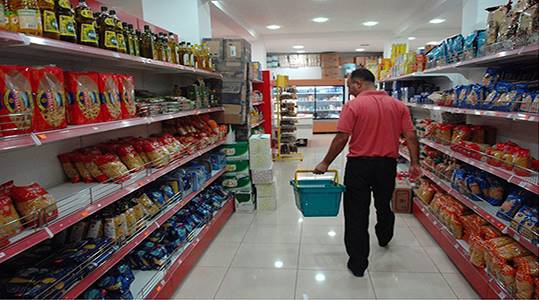Algeria's annual inflation fell to 2.7 percent in July from 3.1 percent registered in the previous month, following a drop in food prices.
According to the data released by the National Bureau of Statistics, the consumer price index fell 0.7 percent in July, while the cost of fruit and vegetables fell by 34.1 percent and 3.1 percent respectively, while poultry prices rose by 5.4 percent.
Algeria is seeking to increase the domestic production and lessen its import bill to reduce the deficit levels after a decline in energy revenues.
According to a study by the American Carnegie Institute, the structure of the Algerian economy is "particularly fragile", because it is rent-based and relies on hydrocarbon exports, particularly oil and natural gas, which account for 95 percent of export earnings, 40 percent of budget revenues, and 30 percent of the GDP.
The study showed a significant impact of the volatility of oil prices on the Algerian economy, it also mentioned that in 2013, the average price of a barrel of Algerian oil was $110.8 dollars, and the oil revenues accounted for 65.4% of the government revenues.
Source (Al-Arabi Al-Jadeed Newspaper, Edited)

